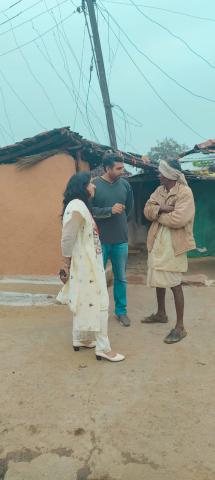
Learning Beyond Takeaways
What is your takeaway, or what is the outcome of the intervention? This phrase is very popular in almost every sector, and it predominantly comes from the market. It has found its place in educational setups as well. The market, which operates on the fundamental principles of profit, tries to map every investment with the rate of return it can generate. The phrase, such as "What is the takeaway?" or "What are the outcomes?" is quite familiar in that context. When people who run the market set the discourse in education, such phrases slip in. Many popular phrases have their origins in a particular domain and then find their way into different disciplinary areas.
Both takeaways and outcomes are now quite acceptable in the educational domain, and most classrooms have posters of learning outcomes hanging against walls.
At times, we have to stop and question: Is it possible to map learning outcomes on the line of the rate of return we measure in terms of investment in the market? And if it is possible, what about other popular beliefs that we also keep using, like learning is a long-time process, learning is a lifelong process, and learning is not limited to the walls of the classroom, among others?
For instance, if a group of students is visiting a historical site, and at the end of the day, if we ask them, "What is your takeaway?" students will provide some answers, but the need is to change the question. After the visit, the questions could be: What was your imagination of the place, and how was the reality? What are you thinking now after visiting that place? How has it strengthened your already held beliefs, or how has it debunked some of your beliefs? What change and continuity were you able to see? How do you plan to engage further with the information and impressions you were exposed to? These are a few questions, and there could be several interesting questions designed around this experience.
When a child or adult gets exposed to such a historical site, it becomes a point of reference for life. Whenever that child talks about events, the probability is very high that the reference will be made to the place he/she has visited. This is true for teachers as well. When a teacher talks about a place he/she has visited, the body language will be fundamentally different from a teacher who just imparts information but has not visited the place. These experiences cannot be answered with a pointed question like "What was the takeaway?" When we visit a place and interact with its artefacts, our brain continues to make connections as and when we get into a situation that demands a reference to a particular site that we have visited. The functioning of the brain, as suggested by neuroscience, works very differently than how the investment market works. "Takeaway" cannot work in serious education.
The obsession to see immediate returns on the investment that we make in education will ruin it; at least we have to wait for a generation. Interestingly, even in the field of investment banking, it is advised that to generate great wealth, one has to wait longer. But we often forget to apply this in education. I agree with the idea that there have to be certain rubrics that account for the investment we make in education, but it shouldn't be at the cost of making learning superficial. We have to find new phrases and engage with the science of language to protect learning from the linguistic invasion of the market.
- Log in to post comments
